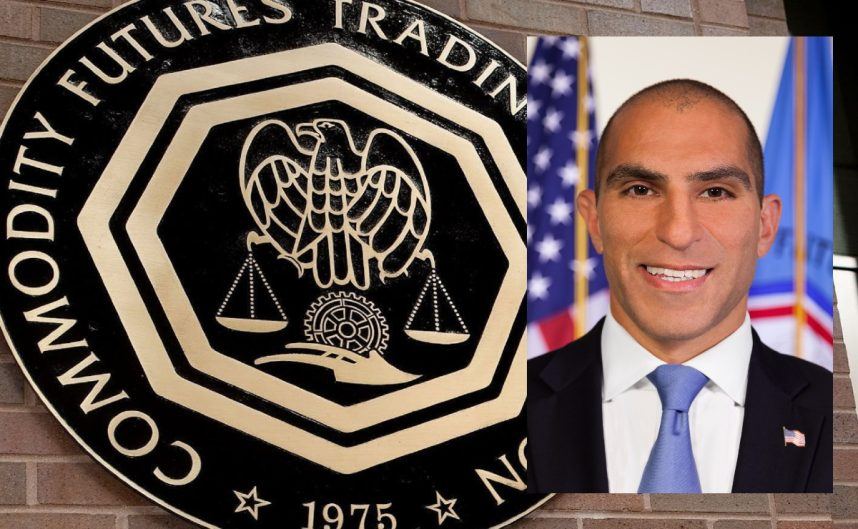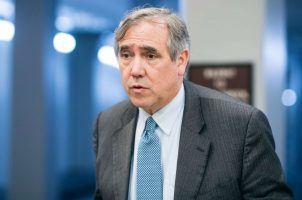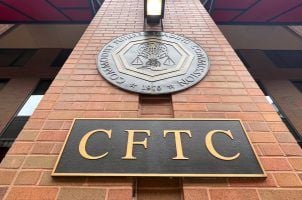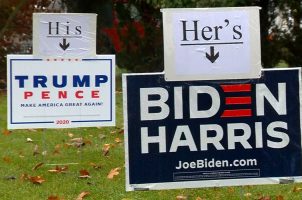Federal Regulatory Boss Whose Agency Oversees Election Betting Resigns
Posted on: January 8, 2025, 10:09h.
Last updated on: January 8, 2025, 10:16h.
The chair of the federal agency that regulates derivates markets, which has recently expanded to include controversial wagering on politics, is resigning.

Rostin Behnam was first appointed to the Commodity Futures Trading Commission (CFTC) in July 2017 by President Donald Trump. After serving on the five-member commission, President Joe Biden elevated Behnam to the role of chair in January 2021.
A Democrat and former attorney, Behnam has opposed allowing online wagering exchanges like PredictIt and Kalshi from facilitating contracts on political events and elections. With Trump returning to Washington, DC, this month, Behnam says he’ll depart effective February 7.
Over the past several years, a multitude of domestic and global events tested the resilience of all financial markets. I am proud that the Commission consistently made deliberate and intentional decisions to ensure continued strength. We worked to address regulatory gaps and uncertainty. We also responsibly engaged new entrants to support innovation,” Behnam wrote in his January 7 resignation.
“I am pleased to leave the CFTC and the derivatives markets stronger than ever. Our staff has demonstrated organizational drive and operational effectiveness. We have welcomed new opportunities to modernize, build capabilities, and, with the support of the Congress, incorporate the innovations shaping our markets,” Behnam concluded.
Less Regulation Likely
Behnam’s departure is presumably a good thing for Kalshi and sites like it that facilitate peer-to-peer wagering on current events and political happenings.
Behnam was steadfast in opposing prediction wagering on elections. While supporters say such markets are more accurate foretellers of election outcomes than traditional polling and can be used for educational purposes, the CFTC chair said they threatened the integrity of the democratic process.
Election gambling fundamentally cheapens the sanctity of our democratic process,” Benham wrote Congress last summer. “Political bets change the motivations behind each vote, replacing political convictions with financial calculations.”
Trump, no stranger to a bet as he made a considerable portion of his fortune from casinos in Atlantic City and Indiana, has pledged deregulation in his second four-year stint in the White House. He’s expected to appoint a conservative to the CFTC chair who supports a free market with less — not more — federal oversight.
Trump and the Polls
The incoming president has despised polls throughout much of his political career. The former casino tycoon has pushed back against pollsters who he believes have a political bias against him.
Trump was correct in 2016, as his opponent, Hillary Clinton, led in almost every nationwide and swing-state poll. Some pollsters gave Clinton a more than 90% chance of winning.
Polls in 2020 again showed Trump losing, and they turned out to be correct. But Joe Biden winning the popular vote by 4.5% was significantly less than the polling average of 8%.
Last November, pollsters had the race even between Trump and Kamala Harris. Trump won easily with 312 Electoral College votes, and won the popular vote 49.9%-48.4%.
While the polls suggested a close race, the betting markets gave Trump a 61% implied chance of winning to Harris at just 39%.
Related News Articles
CFTC Official Who Regulated Political Betting Exchange Murdered
PredictIt to Seek Injunction Against Ending Political Exchange in Feb. 2023
Most Popular
PUCK, NO! Health Dept. Closes Las Vegas Wolfgang Puck Restaurant
Oakland A’s Prez Resigns, Raising Questions About Las Vegas Move
MGM Osaka to Begin Construction on Main Resort Structure in April 2025
Most Commented
-
UPDATE: Whiskey Pete’s Casino Near Las Vegas Closes
— December 20, 2024 — 33 Comments -
Zillow: Town Outside Las Vegas Named the Most Popular Retirement City in 2024
— December 26, 2024 — 32 Comments -
Oakland A’s Prez Resigns, Raising Questions About Las Vegas Move
— December 27, 2024 — 9 Comments -
UPDATE: Former Resorts World & MGM Grand Prez Loses Gaming License
— December 19, 2024 — 8 Comments
















No comments yet